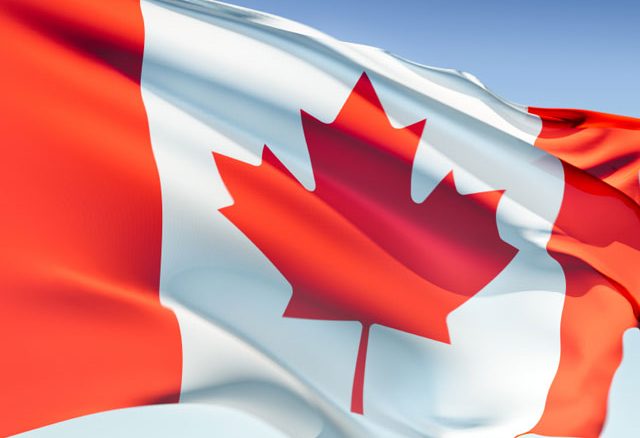
Migrating from USA to Canada
Over a hundred options are available to American citizens who are thinking of migrating to Canada.
Immigrants get a warm welcome in Canada. The government turns to immigration to assist increase the population of Canada because of demographic variables such as a declining labor force and a low natural birth rate. An average of 1% of Canada’s population increase is attributable to new immigrants each year. Over 431,000 people are expected to migrate to Canada in 2022 alone, according to government projections. Based on the current forecasts, that number is likely to rise during the next two years.
Despite the pandemic’s impact on Canada’s immigration system, immigration minister Sean Fraser predicted that by the end of the year, processing times will be back to normal. Furthermore, on July 6, the Express Entry system, Canada’s primary immigration route, will reopen to skilled workers. The processing time for new applications is six months.
An overview of Canada’s most common economic immigration routes and an introduction to family sponsorship are provided here.
Expedited Entries
The Federal Skilled Worker Program (FSWP), the Federal Skilled Trades Program (FSTP), and the Canadian Experience Class all use Express Entry as their online application management system (CEC).
The purpose of Express Entry was to streamline the process of applying for permanent residence in Canada compared to the old system, which was dependent on paper applications. People who applied during the pandemic tend to face substantially lengthier wait periods than those who applied before the epidemic.
The CEC is the best Express Entry program for Canadians already in the country. – At least one year of Canadian work experience in a skilled occupation is required for candidates to be considered.
The Express Entry points system values Canadian job experience, but it is not essential to be eligible for the FSWP.
To be eligible for the FSWP, you must have a minimum of one year of skilled work experience, a CLB 7 in either English or French, and proof of schooling. The Comprehensive Ranking System (CRS) utilized by Express Entry is different from the FSWP points grid, which requires a score of 67 out of 100. Having a job offer isn’t essential.
Tradespeople having at least two years of full-time experience in a qualifying vocation are eligible for the FSTP, which is open to them. Additionally, you must be able to demonstrate that you are qualified to work in a skilled trade in Canada, as well as have a legitimate employment offer for at least one year in Canada.
Candidates with the highest scores are invited to apply for permanent residency through the Express Entry method. Without an Invitation to Apply, it is impossible to apply for permanent residency (ITA). Immigration, Refugees and Citizenship Canada (IRCC), Canada’s immigration service, organizes invitation rounds on a regular basis where it sends out ITAs. A provincial nomination may be an option if your CRS score isn’t high enough to qualify you for an ITA. This will help your Express Entry application have a better chance of being approved.
Program for Nominating Provincial Candidates
Except for Nunavut and Quebec, every province and territory in Canada has a Provincial Nominee Program (PNP).
Two sorts of PNPs exist: those that are “enhanced” and those that are “basic,” which are separate from the Express Entry program.
Candidates for enhanced programs are drawn from the Express Entry pool. If you are nominated by a province through one of these PNPs, you will gain an additional 600 CRS points. Getting an ITA in a later Express Entry lottery will be made more likely if you obtain this prize.
People who are not qualified for Express Entry may be able to take advantage of base PNPs, which operate in a somewhat different way. You apply to the province, and if you’re qualified, you’ll receive a nomination. It’s now possible to apply for permanent residency with your certificate in hand.
Sponsorship by a family
Citizens and permanent residents of Canada can sponsor their spouse, common-law partner, children, or parents and grandparents for immigration. Only in rare situations can Canadians sponsor blood relations such as a brother, sister, aunt, or uncle. They are not allowed to sponsor relatives who are criminally or medically ineligible.
Sponsorships for spouses and common-law partners might come from inside Canada or from outside the nation. In order to be eligible, you must be over the age of 18, have a long-term, genuine relationship with a Canadian, and be able to support yourself and any children you may have. Canadian citizens can sponsor from outside the nation, but permanent residents must be in Canada to do so. Spousal Open Work Permit: If you and your spouse or common-law partner wish to stay and wait out the procedure in Canada, you may be eligible to receive one.
Those who are the parents or grandparents of Canadian citizens can apply for permanent residency through the PGP. IRCC now takes interest in sponsoring forms for a brief intake period, similar to a lottery. Candidates are then invited to apply for permanent residency by the immigration department. The Super Visa, an alternative to the PGP, permits grandparents and parents to stay in Canada for up to two years at a time..
Children under the age of 22 who are Canadian citizens or permanent residents can also be sponsored.

Be the first to comment